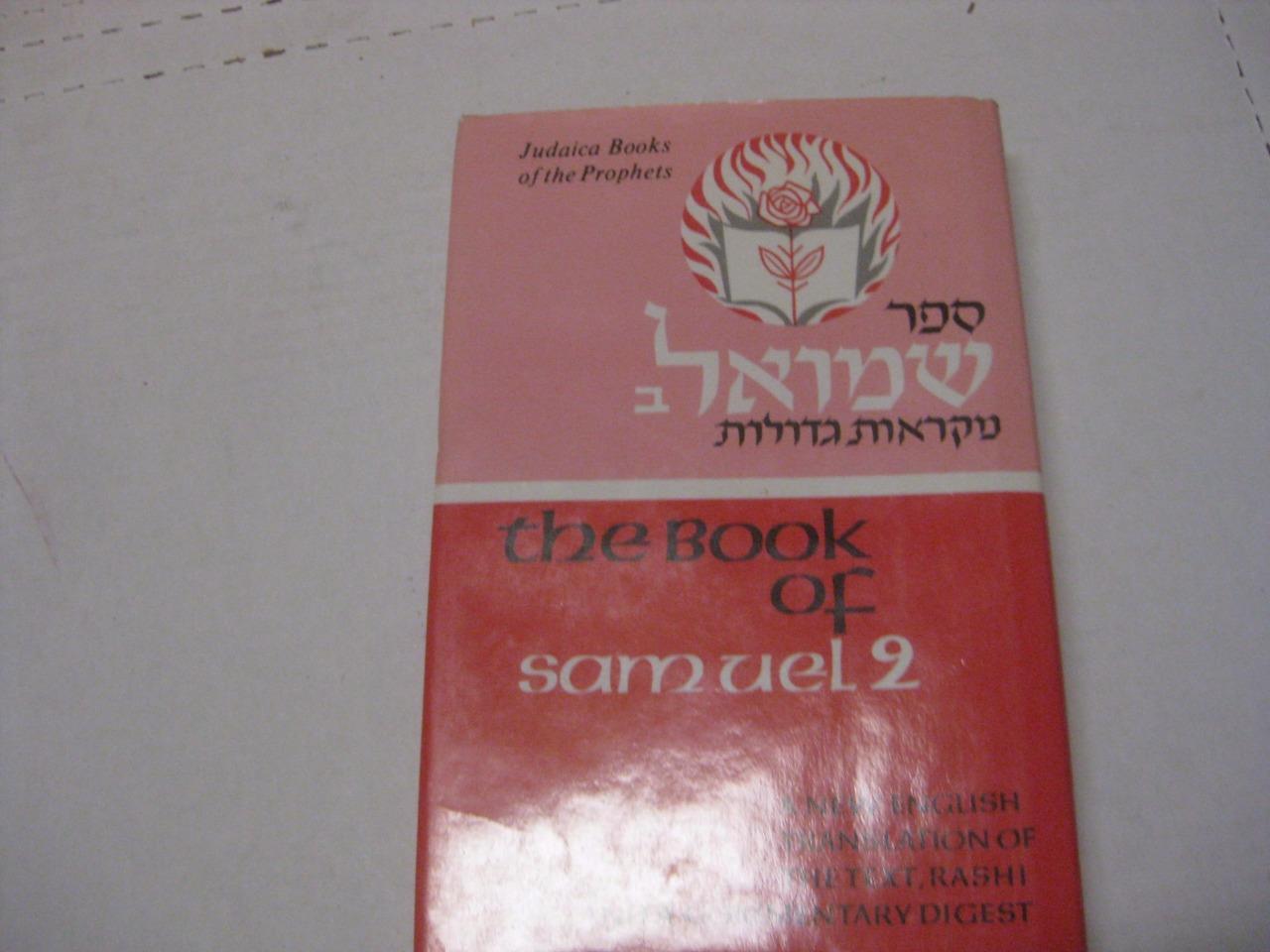dybmh
דניאל יוסף בן מאיר הירש
I didn't really read the whole story. I was focused on Rival's question.you just read the story
Welcome to Religious Forums, a friendly forum to discuss all religions in a friendly surrounding.
Your voice is missing! You will need to register to get access to the following site features:We hope to see you as a part of our community soon!
I didn't really read the whole story. I was focused on Rival's question.you just read the story
I'm wrestling with this... Did David sin or not... that's where I'm stuck. I keep finding more and more sources that say there was no sin. But, 2 Shmuel 12:13 says there was.[assuming you are of the opinion that he sinned]
I read the Zohar quote -- kudos to Tumah for tracking it down. As to the sin, the talmud has much to say on whether David sinned.I'm wrestling with this... Did David sin or not... that's where I'm stuck. I keep finding more and more sources that say there was no sin. But, 2 Shmuel 12:13 says there was.
Did you look at Zohar 2:107 yet that Tumah found in the other thread?
I read the Zohar quote -- kudos to Tumah for tracking it down. As to the sin, the talmud has much to say on whether David sinned.
If in 2nd Shmuel 12:13, HeEvir, is translated as "passed", do you think that it ( the verse 12:13 ) agrees with the Zohar in this.I read the Zohar quote
I don't see the use of he'evir as referring to the passing on of the orders. My Zoharic knowledge is effectively non-existent, but the discussion of Yoav, to my eyes, is more a discussion of culpability in transmitting the message. David was the ultimate authority and people were said to be his, so to send a message through a subordinate who was just passing it along should not cause the subordinate to be punished.If in 2nd Shmuel 12:13, HeEvir, is translated as "passed", do you think that it ( the verse 12:13 ) agrees with the Zohar in this.
David passed the orders for Uriah thru Joab? ( that's what I'm seeing in the Zohar )
The sin was passed on, and the boy became ill? ( This is 2 Shmuel 12:13 paraphrased roughly with 'passed' instead of 'remitted' )
Note: I looked up HeEvir on sefaria's dictionary. It looks like it's often translated as "passed".
OK, thank you.I don't see the use of he'evir as referring to the passing on of the orders. My Zoharic knowledge is effectively non-existent, but the discussion of Yoav, to my eyes, is more a discussion of culpability in transmitting the message. David was the ultimate authority and people were said to be his, so to send a message through a subordinate who was just passing it along should not cause the subordinate to be punished.
subordinate to be punished.
No - but Yoav was not punished when the order to Uriah was transmitted through him.I'm not trying to argue. but, the boy became ill. So that means David was punished ,not the subordinate?
I'm not seeing where we disagree.No - but Yoav was not punished when the order to Uriah was transmitted through him.
I don't see any parallel to the son's dying.I'm not seeing where we disagree.
Reconciling Talmud passages is a big part of Talmud study. Noting the discrepancies isn't something to be frustrated about, that's where all the joy in learning Talmud comes from.Then there's the question of how one reconciles, e.g., Yoma 22b Shabbat 56a.
Truth be told, I struggle with Torah, and I'm OK with that, but sometimes I think that Talmud is simply beyond me. It's frustrating.
It's in the english translation of Mikraoth Gidoloth. The source they cite is Rabeinnu Nissim. It's also attached to 12:9.This is not my own opinion, I found this among commentaries, possibly including Maimoindes.)
Reconciling Talmud passages is a big part of Talmud study.
Well.... I mean....It's also a big part of the most senseless and extreme dogmatism.
Do they give a source where he wrote this? I don't know of any commentary on Tanach by that Rabbi. Maybe in his sermons?It's in the english translation of Mikraoth Gidoloth. The source they cite is Rabeinnu Nissim. It's also attached to 12:9.
In which verse? By which commentary?In the english the disctintion ( apparently ) is being made between a "transgression" and a "sin". And that is confusing to me.
Well, at least I don't know anyone who gives that interpretation. You can also find the word used with this meaning in Micah 7:18 and Job 7:21That's what led me back to HeEvir. Which may be a total dead-end, admittedly.
In what way does that play a part?It's also a big part of the most senseless and extreme dogmatism.
Here's the book I'm looking at ( in a spoiler because the image is large )Do they give a source where he wrote this? I don't know of any commentary on Tanach by that Rabbi. Maybe in his sermons?
In which verse? By which commentary?
Well, at least I don't know anyone who gives that interpretation. You can also find the word used with this meaning in Micah 7:18 and Job 7:21

Yeah, I think it's ( the approach of looking at HeEvir ) is bunk... It doesn't fitWell, at least I don't know anyone who gives that interpretation. You can also find the word used with this meaning in Micah 7:18 and Job 7:21
Only G-d knows. That was easy -Shalom, I'm currently listening to Rabbi Skobac live on Tenak Talk so this is brief as I'm trying to listen. The chatters came to talking about King David and his first child with Batsheva. Why did the child die?
Thanks.
